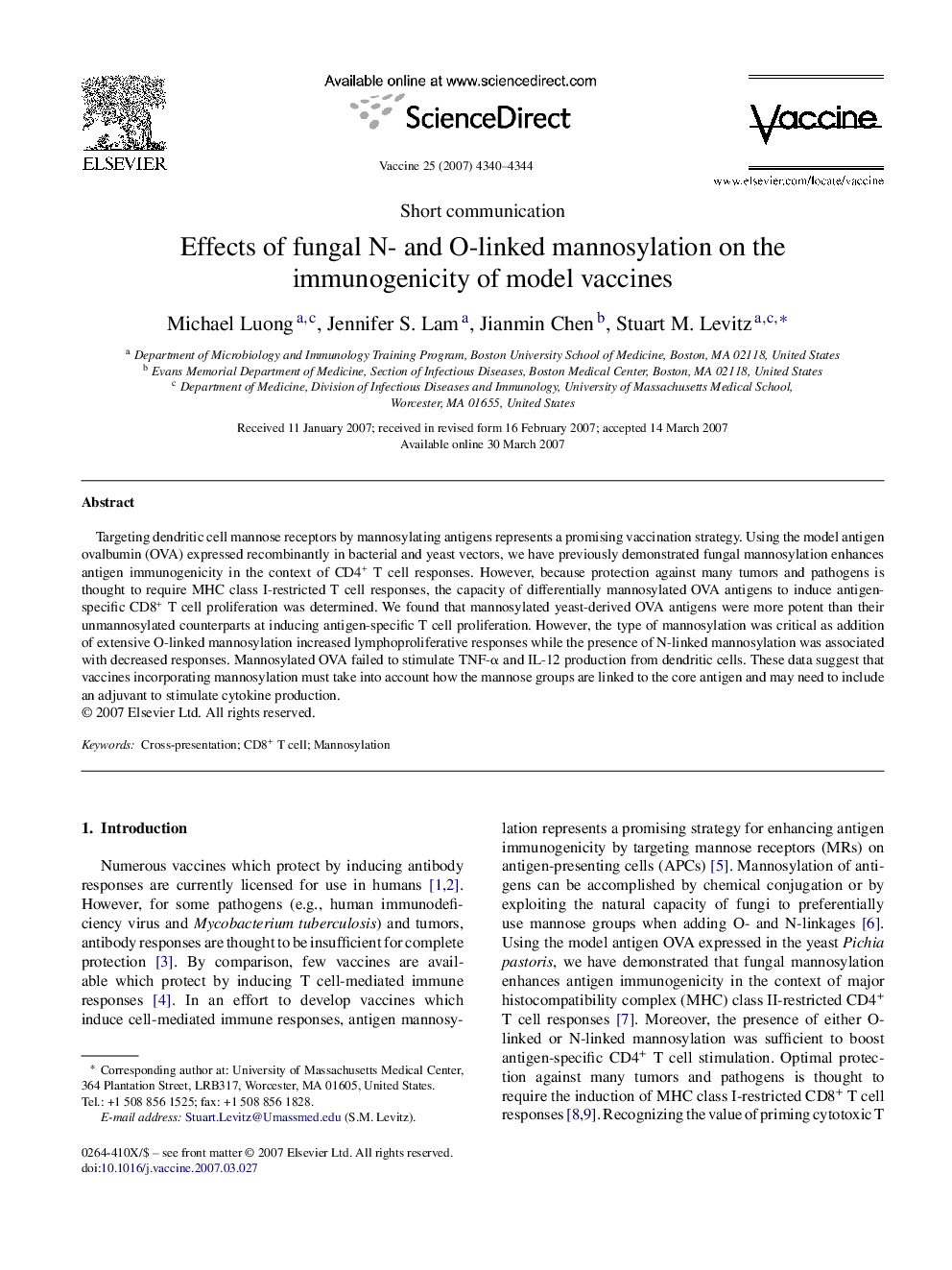| Article ID | Journal | Published Year | Pages | File Type |
|---|---|---|---|---|
| 2409080 | Vaccine | 2007 | 5 Pages |
Targeting dendritic cell mannose receptors by mannosylating antigens represents a promising vaccination strategy. Using the model antigen ovalbumin (OVA) expressed recombinantly in bacterial and yeast vectors, we have previously demonstrated fungal mannosylation enhances antigen immunogenicity in the context of CD4+ T cell responses. However, because protection against many tumors and pathogens is thought to require MHC class I-restricted T cell responses, the capacity of differentially mannosylated OVA antigens to induce antigen-specific CD8+ T cell proliferation was determined. We found that mannosylated yeast-derived OVA antigens were more potent than their unmannosylated counterparts at inducing antigen-specific T cell proliferation. However, the type of mannosylation was critical as addition of extensive O-linked mannosylation increased lymphoproliferative responses while the presence of N-linked mannosylation was associated with decreased responses. Mannosylated OVA failed to stimulate TNF-α and IL-12 production from dendritic cells. These data suggest that vaccines incorporating mannosylation must take into account how the mannose groups are linked to the core antigen and may need to include an adjuvant to stimulate cytokine production.
